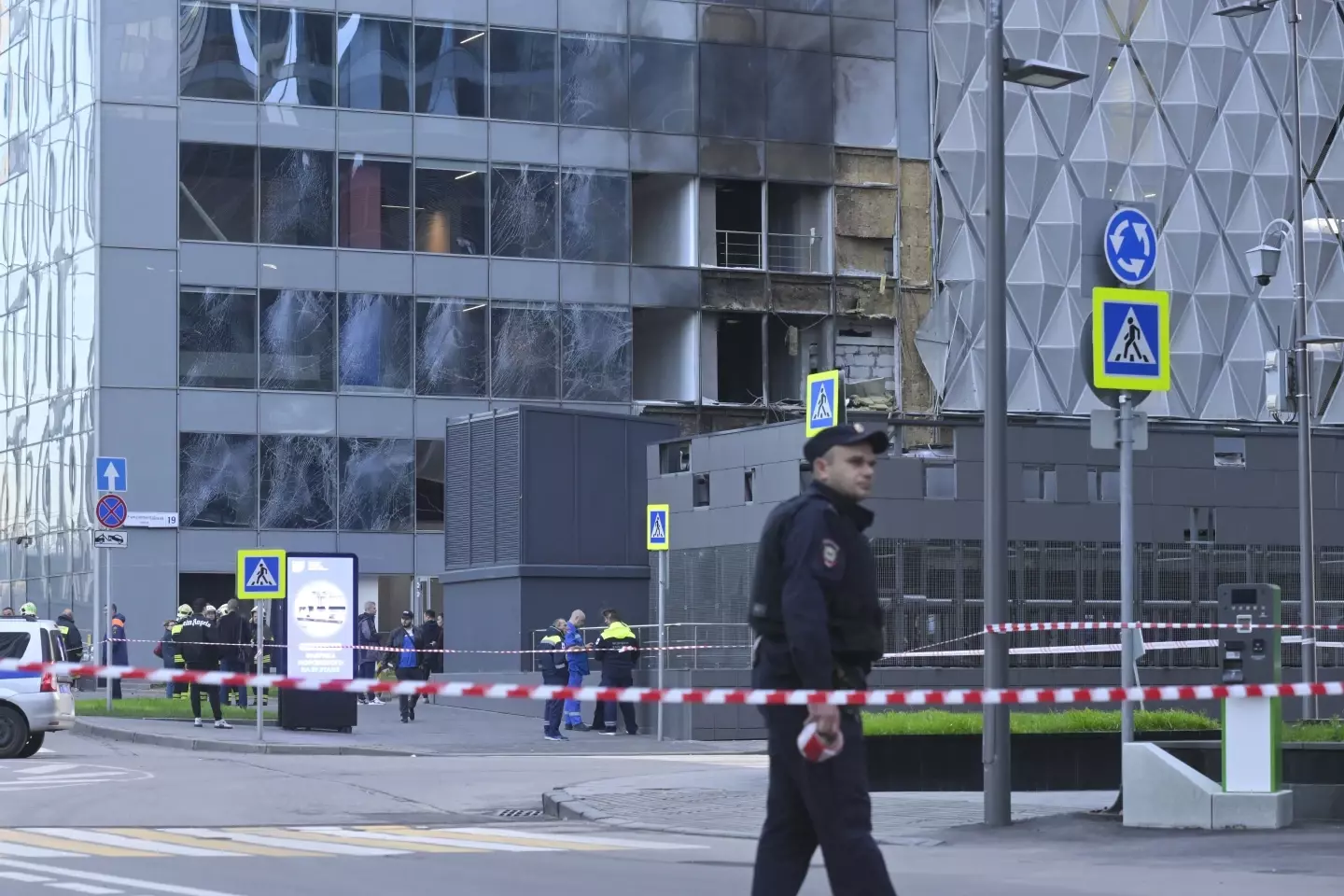Ukraine reported bringing war deep into Russia with attacks on Moscow and border region
MOSCOW

Ukraine brought the war far from the front line into the heart of Russia again Sunday in drone penetrations that Russian authorities said damaged two office buildings a few miles (kilometers) from the Kremlin and a pig breeding complex on the countries' border.
The attacks, which Ukraine didn't acknowledge in keeping with its security policy, reflected a pattern of more frequent and deeper cross-border strikes the Kiev government has launched since starting a counteroffensive against Russian forces in June. A precursor and the most dramatic of the strikes happenned in May on the Kremlin itself, the seat of power in the capital, Moscow.
Sunday's was the fourth such strike on the capital region this month and the third this week, showing Moscow’s vulnerability as Russia's war in Ukraine drags into its 18th month.
The Russian Defense Ministry said three drones targeted the city in an “attempted terrorist attack by the Kiev regime.” Air defenses shot down one drone in Odintsovo in the surrounding Moscow region, while two others were jammed and crashed into the Moscow City business district.
Photos and video showed that a drone had ripped off part of the facade of a modern skyscraper, IQ-Quarter, located 7.2 kms (4.5 miles) from the Kremlin. When the drone hit, sparks, flames and smoke spewed from the building, with debris falling on the sidewalk and street. Windows were blown out, and metal window frames were mangled. A security guard was injured, Russia's state news agency Tass reported, citing emergency officials. Russia's Ria-Novosti news agency reported the building's tenants included several government agencies.
Flights were temporarily suspended at Moscow's Vnukovo airport, and the airspace over Moscow and the outlying regions was temporarily closed.
President Vladimir Putin, who was in his hometown of St. Petersburg at the time of the attempted attacks for meetings with African leaders and a naval celebration, was briefed, his spokesman said.
Ukrainian officials didn’t acknowledge the attacks but President Volodymyr Zelensky said in his nightly video address: “Gradually, the war is returning to the territory of Russia — to its symbolic centers and military bases, and this is an inevitable, natural and absolutely fair process.”
A Ukrainian air force spokesman also didn't claim responsibility but said the Russian people were seeing the consequences of Russia's war in Ukraine.
“All of the people who think the war ‘doesn’t concern them' — it’s already touching them,” spokesperson Yurii Ihnat told journalists Sunday.
“There’s already a certain mood in Russia: that something is flying in, and loudly,” he said. “There's no discussion of peace or calm in the Russian interior any more. They got what they wanted.”
Ihnat also referenced an early Sunday drone attack on Crimea, Ukrainian territory which Russia occupied and illegally annexed in 2014. The Russian Defense Ministry announced it had shot down 16 Ukrainian drones and neutralized eight others through electronic jamming. No casualties were reported.
Zelensky has vowed to take back all land Russian forces have occupied, including Crimea, and his efforts have been strengthened by the receipt and deployment of increasingly advanced Western weapons.
In the earlier attacks on Moscow, Russia's Defense Ministry reported shooting down a Ukrainian drone outside the city on Friday. Four days earlier, two drones struck the Russian capital, one of them falling in the center of the city near the Defense Ministry’s headquarters along the Moscow River about 3 kilometers (2 miles) from the Kremlin. The other drone hit an office building in southern Moscow, gutting several upper floors.
In another attack on July 4, the Russian military said air defenses downed four drones on Moscow's outskirts and jammed a fifth that was forced down.
Russia has also blamed Ukrainian forces for attacking border areas, and on Sunday, the governor of one such region, Bryansk, said a Ukrainian strike damaged a pig breeding complex and injured three people.
In Ukraine, the air force reported Sunday it had destroyed four Russian drones above the Kherson and Dnipropetrovsk regions. Information on the attacks could not be independently verified.
Meanwhile, a Russian missile strike late Saturday killed two people and wounded 20 in the city of Sumy in northeast Ukraine. A four-story vocational college building was hit, the Ukrainian Interior Ministry said. Local authorities said that dormitories and teaching buildings were damaged in the blast and a fire that followed.
While the attacks continued on the war front, so did the war of words. Dmitry Medvedev, the deputy secretary of Russia’s Security Council, issued his latest nuclear war threat in a Telegram post Sunday. In it, he claimed Russian forces were preventing a nuclear war. He contended that if Ukraine, with NATO countries' support, succeeded in its counteroffensive, including if “they seized part of our land,” then Russia would “go for the use of nuclear weapons.” Western leaders have repeatedly warned of the dangers of making such statements.
















